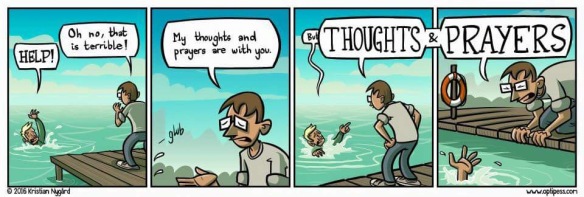
From the age of sixteen, I have spent summers working. I worked in St. John’s that first year, dividing my time between the Newfoundland Institute of Cold Ocean Science and the Department of Fisheries and Oceans. The next year, I worked for my town, doing everything from community fundraisers to cemetary maintenance to cleaning the fire hall to supervising a kids’ dance. Then, it was answering phones and greeting visitors to what was then known as the Department of Indian Affairs and Northern Development (now called Indigenous and Northern Affairs). The following two summers were spent doing grunt work for Newfoundland’s Forestry and Agrifoods Agency. I got an excellent tan. All of these jobs were available to me because of government support for student employment. In addition to broadening my work experience and honing valuable administrative, leadership, social and life skills, they were a great help in getting me through school, along with student loans, and – of course – the Bank of Mom and Dad.
Fast-forward more years than I care to dwell on: at mass yesterday, the priest read a letter composed by Bishop Douglas Crosby of the Diocese of Hamilton. The letter was about two camps that are supported by the parish – one a mentoring-and-leadership camp that is affordable even to those whose families can’t afford to send them to camp, and one for children with mobility challenges (for example, spina bifida and cerebral palsy) who need physical assistance to participate in the camp activities typically enjoyed by able-bodied children. These camps have traditionally been assisted by government funding to hire students to help run things. Many tasks, from janitorial and cooking duties to supervising the children, are completed by students. The campers gain positive, relatable role models. The students gain experience and skills. If it’s like any other summer camp I’ve heard of, everyone gains great memories and increased confidence. These camps are now, apparently, at risk because they have been denied public funding for student positions. Why? Because the Catholic church would not deny its convictions and attest to its support for abortion. If you feel that a church’s position on abortion and a church-supported camp’s ability to hire a lifeguard ought not to be connected, you’re not alone.
The federal government’s recently introduced policy of denying student job funding (via FSWEP, the Federal Student Work Experience Program) to groups who refuse to attest to their support for abortion rights has been controversial. In addition to camps like the ones mentioned above, churches have always been a solid support for vulnerable and marginalized communities through everything from food banks to youth centres to sponsorship of refugees to breakfast programs to charity shops to hospices – and more. The students hired by churches are not being paid to protest abortion rights. They’re being paid to help the parish carry out these vital services to the community. Many churches are trying to put their money where their mouth is, as is the Diocese of Hamilton, by collecting donations from members. But the charitable giving of most churchgoers is already high. The additional burden of funding programs that were once covered by government grants will likely result in money being stretched thinner across more surface area. Previously robust initiatives may suffer, and newly supported initiatives may not be able to survive.
The struggles of churches and church-supported programs are probably not going to attract much sympathy or even interest. Reactions might even include some ill-concealed glee. If there’s one thing people love to hate these days, it’s religion – and, by extension, religious institutions and religious people. Abortion rights is a very hot topic with strong feelings on both sides. However, regardless of whether you like churches and churchgoers, regardless of your position on abortion, what should attract a great deal of interest is the government’s infringement on the constitutional right to freedom of conscience, religion, thought, belief, opinion, expression and association.
Abortion is legal. This means that any woman who wants one has a right to seek one. Canada has gone one step further and made them publicly funded, so money is no obstacle. This is not likely to change – Canadians have, for the most part, accepted the reality of living in a country that supports and pays for abortion. Many Canadians have longed for that right, and actively promoted it. However, constitutional rights are enshrined. I cannot change the law, but I don’t have to like it or support it. In fact, constitutionally, I should be allowed to hate it – and say so – and be a member of an organization that condemns it. Furthermore, if my constitutional rights are being properly upheld, I should still be granted full access to the same publicly funded programs as those who cherish the right to abortion on the taxpayer’s tab.
The Trudeau government took its first step down a very slippery slope when Justin Trudeau declared that pro-lifers could not run as Liberals. Many people were disturbed by his apparent desire to surround himself with yes-men, and his refusal to entertain any viewpoint other than his own, on such a controversial topic. In true Justin style, he steamrolled over these concerns and moved on. The issue of whether people whose conscience will not allow them to support abortion rights should be considered for student employment funding will probably not be treated any differently.
As I said, a slippery slope. What’s next? Will public servants have to sign their support for things they don’t agree with to keep their jobs? Will there be a new checkbox on social assistance applications that allows Canada to make sure it isn’t providing financial aid to people with unpopular views? What about student loans for people who don’t agree with abortion? Will those be affected? These examples may sound extreme, but it’s all public money – just like FSWEP. People who don’t agree with the Liberal party’s policies or even Canadian law are still Canadians – many of whom pay for FSWEP and other such programs with their taxes. As Canadians, they should be entitled to believe whatever they like, and say so, with no fear of it affecting their access to public funding and programs. Anything else – in this case, the hypocrisy of a government that claims to uphold the rights and freedoms of all of us while making second-class citizens of people who don’t hold or support approved views – is unconstitutional.






